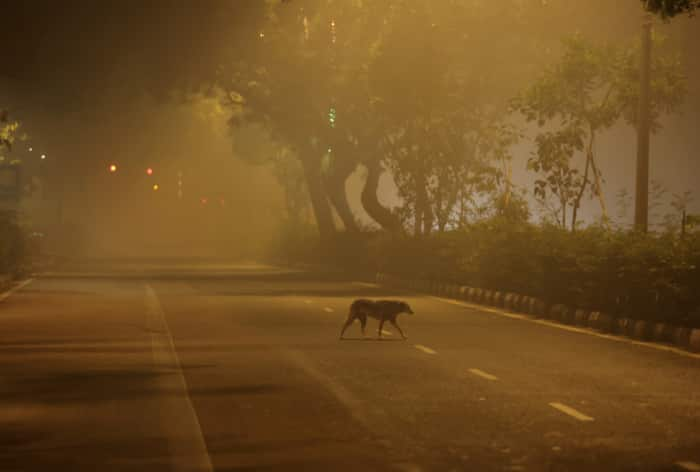
[ad_1]
At a time when climate change demands urgent action, storytelling is emerging as a powerful tool to reshape our understanding, engagement and action around this global crisis.

New Delhi: Amid the scorching devastation of the California wildfires in 2017, two young sisters, Mia and Maia Bravo, clung to each other in their family minivan and watched their trailer in Glen Ellen, a village in Northern California’s wine country, succumb to an inferno as wildfires ravaged the State. Five years later, vivid images of the haunting night have still not withered away. “I was afraid, in shock,” Maia is quoted as saying in a scathing report released by UNICEF recently.
Stories such as these present a stark reality. According to the UNICEF report, a staggering 43.1 million children were forced to flee their homes between 2016 and 2021—a consequence of the unmistakable effects of climate change. As their scarred voices continue to ring in our ears, however, it’s vital to take forward the stories of how climate change is changing the way we live, behave, and respond to crises. While climate change is no longer a distant reality (a fact that’s been discussed ad nauseam), it’s through storytelling that the voices of Mia and Maia have travelled out of California.
At a time when climate change demands urgent action, storytelling is emerging as a powerful tool to reshape our understanding, engagement and action around this global crisis. In the overwhelming era of climate crises and information overload, the transformative power of storytelling offers solace. Tackling a collective challenge, where behaviour change lies at the heart of transformation, can only be achieved through the persuasive art of storytelling.
Some wonder why we need storytelling when data tells us all we need to know about climate science. For many, it’s easy to comprehend data, especially when it comes to hard-hitting numbers in reports such as the one cited above. But, often, scientific data becomes just another instrument consigned to attention-grabbing newspaper headlines, screaming television debates, or the margins of academic journals. The idea of rising temperatures leading to wildfires impacting lives may seem abstract until it is documented in the form of a compelling narrative built on voices such as those of the Bravo sisters. The detachment usually felt from concepts such as air pollution, which is the biggest threat to humanity, as a silent killer, can only be bridged by powerful emotion attached to the underlying message.
While there may not be a single individual who can be credited with coining the term’storytelling’, what can clearly be studied is how storytelling has evolved. Today, it transcends traditional boundaries, spanning a vast spectrum from health to entertainment, but at the heart of it lies an inherent power to foster change. Communities drive change. And bringing forward the voices of communities are creators from diverse backgrounds, united by their recognition of the potential of narrative-driven change. Climate science can often be daunting or mired in jargon. But when such creators and communities get together, they strike a chord through effective narratives and visual tools. This amplifies the voices of those who are affected, evoking the consciousness of others, making it a shared responsibility to address such challenges. Aiding data points and research, creators, with their storytelling, can connect diverse stakeholders and foster collaboration and collective action.
In this rapidly evolving storytelling landscape, the theory of change itself is evolving at an unprecedented pace. What these narratives aim to do is overcome limitations, biases, misconceptions, and falsehoods. Storytelling is not just helping us change; it’s helping us change faster. It is a hard-to-miss force that is propelling us towards a more sustainable future for our country and the world at large.
By Tamseel Hussain
(The author is the founder and CEO of India’s leading storytelling and creator platform, PlucTV which, along with Studio Silverback, is helming the Planet India campaign.)
[ad_2]